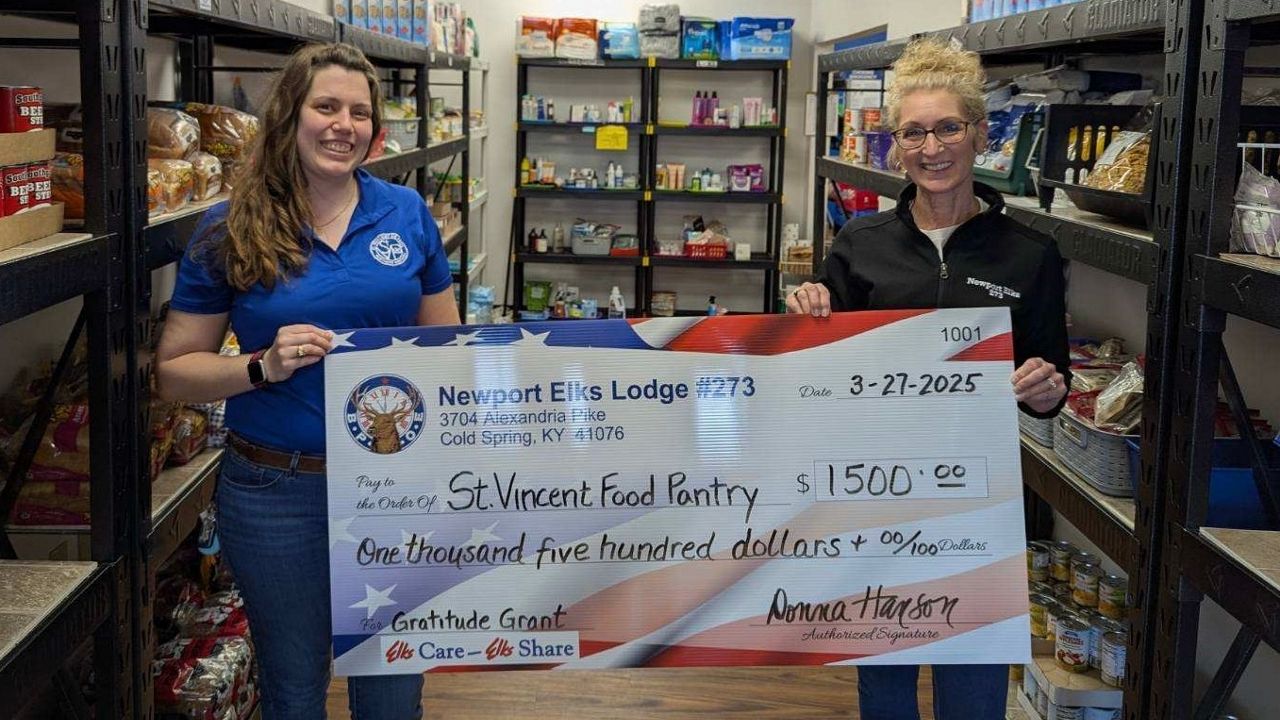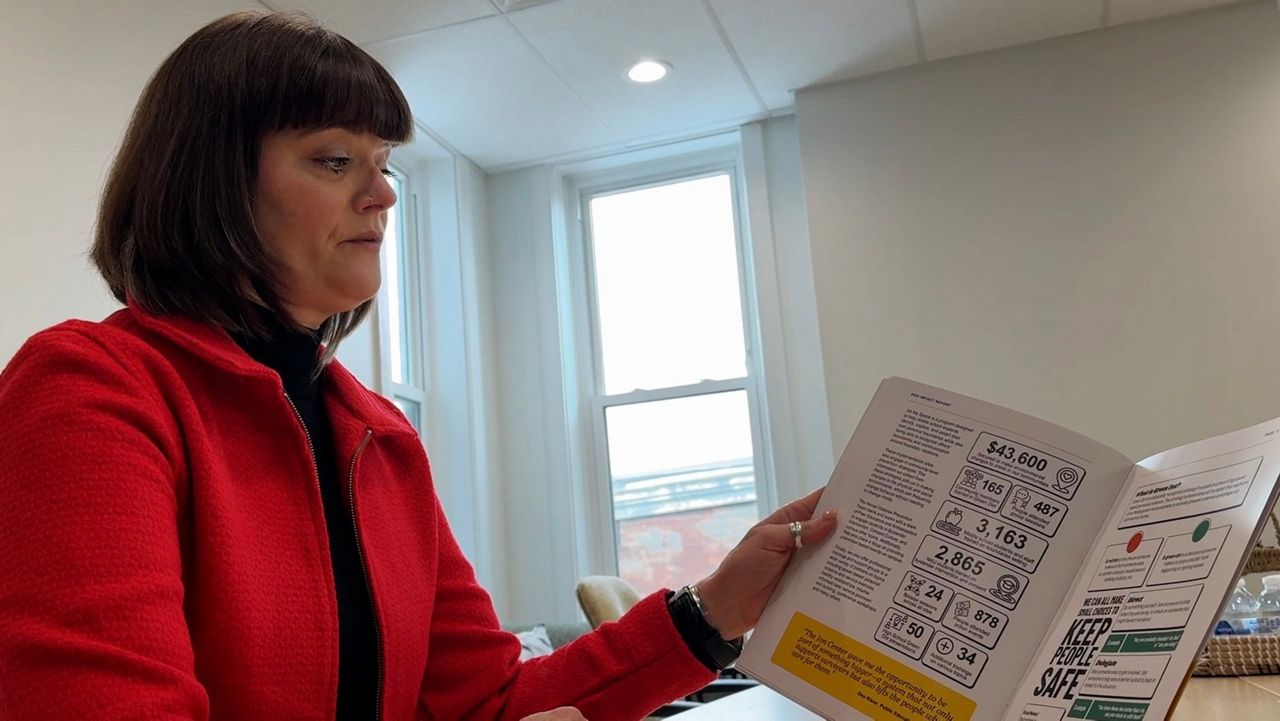COVINGTON, Ky. – Some neighbors in one Covington neighborhood said they think a homeless shelter is being mismanaged.
Shelter management, however, said it’s doing the best it can to be a good neighbor while also helping people in crisis.
The Emergency Shelter of Northern Kentucky opened its new location on West 13th Street in Covington at the beginning of 2022. Since then, Nicole Erwin and Aaron Wolpert, who both live a few blocks away from the shelter, said they have become concerned over what they’ve seen.
“We are not in any way allergic to or hostile to homeless people. Sitting on our street, we see all sorts of people. We love the diversity of Covington. That’s why we live here. That’s why we continue to live here,” Wolpert said. “But we certainly noticed a whole lot more folks who seemed like they were clients of the shelter, pretty much right away.”
Erwin, Wolpert and a group of other neighbors said they’ve seen an uptick in littering, conspicuous sexual activity in the neighboring cemetery, suspected drug activity and jugs of urine left on porches.
Wolpert said he has filed eight complaints through city code enforcement on behalf of the group.
Erwin said she became very concerned when she noticed a man dressed in dark clothing while jogging in the cemetery.
“The person started following me — to a degree that I ended up calling the cops once I got home. And later on, [I] saw the same individual enter the shelter,” she said.
Erwin said she brought the incident to the attention of shelter management, but was told the person in question never entered the building.
“There are very obvious things that are happening from the outside, that this shelter is not being a good neighbor or host to say the least. And it also concerns me what’s happening on the inside,” she said.
Erwin and Wolpert said they believe the shelter is violating a city ordinance which mandates a management plan for operations inside shelters and mitigation plan for impact of a shelter on its surrounding communities.
ESNKY Executive Director Kim Webb said the shelter wouldn’t have its license if it didn’t follow the rules.
“We have a really high standard set for us — both from a city perspective, but also from a county perspective, because Kenton County is our landlord. So, we have to meet those requirements,” Webb said. “We want to be transparent. We want to be a good neighbor here in the community.”
Webb said the shelter also holds its guests to the same high standard. But as a low barrier shelter dealing with people in crisis, that’s often a hard balance to strike.
“A low barrier shelter is a national best practice. It is meeting people where they’re at. It is an important part of the crisis response system. We believe that anybody in our community should have an immediate bed to sleep in and not sleep outside,” Webb said. “We work hard to communicate with our guests on an ongoing basis. You know, we have a code of conduct that they sign when they come in. It’s very much like a classroom. The understanding is that, yes, you need to be a good citizen in this community. But you also need to be a good citizen in the overall community.”
“If you're going to break the law, we’re calling the police,” she continued. “Because regardless if you’re homeless or not, the fact is our community requires you to be a good citizen and follow those laws.”
She said the shelter hosts quarterly neighborhood listening sessions.
After making the suggestion of adding security cameras, Erwin said the group was told by the shelter it could not afford to do so. However, through the course of filing multiple complaints and looking at public financial records, Erwin and Wolpert said they learned the shelter had accumulated $5.5 million dollars in assets. The shelter’s revenue was over $3 million, and its operating cost was just under a million dollars. Much of that revenue came through grants and donations.
“We do a financial review every year with an auditor. So that looks at our financial perspectives and answers all those questions. We’ve had successful ones all the years I’ve been here and beyond,” Webb said. “You want to have operating reserves. You should have a buffer in your account to pay expenses for when the downturn happens.”
Wolpert said he wants to see improvement in regard to the issues he’s seen.
“We don’t have to accept things that the shelter could at least make an effort at mitigating. We don’t expect every single problem to disappear overnight. But we would like some concrete plans in that direction,” he said.
The group is also asking the city to look into the shelter’s obligations to fulfill all mandatory state database reporting.










